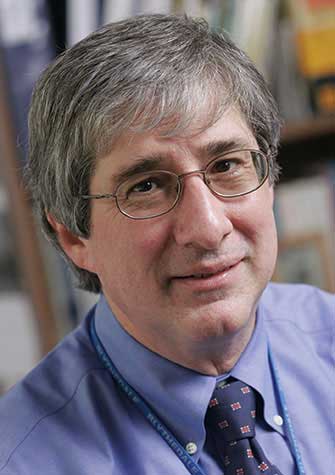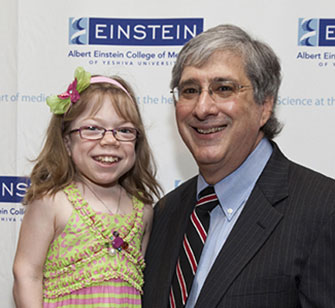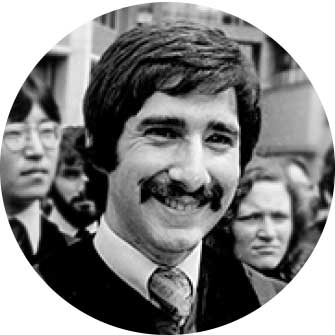
Error: No layouts found

Robert W. Marion, M.D., The Ruth L. Gottesman Chair in Developmental Pediatrics
Over the years, Dr. Marion has taken on some of the toughest cases. One notable example is Alena, born in Siberia and adopted just a few months before her fourth birthday by a New York couple. Alena exhibited a confusing array of symptoms, including a heart murmur, slight hearing loss, short stature, slightly stooped posture and mildly coarsened facial features. She was soon referred to Dr. Marion.

Robert W. Marion, M.D. ’79, with Alena, who has Maroteaux-Lamy syndrome. Dr. Marion paved the way for her to receive a new treatment, which was successful
 Shaping CERC
Shaping CERCSoon after taking the helm at CERC, Dr. Marion set about bringing a clinical research component to the center. In 2009, CERC hired its first research director, cognitive neuroscientist John J. Foxe, Ph.D. ’99.
Dr. Marion is now collaborating with Einstein genetics professors Bernice E. Morrow, Ph.D., and John M. Greally, M.B., B.Ch., Ph.D., on determining the genomic profiles of autism and other developmental disorders. And he is investigating 22q11 deletion syndrome, a group of physical and neurological disorders caused by the loss of a small piece of chromosome 22. Children with 22q11 are frequently misdiagnosed as having autism.

Dr. Marion at his Einstein graduation in 1979
 , the Lewis M. Fraad Award for Residency Education and the Obrinsky Award for Excellence in Medical Student Education in the department of pediatrics. He was also inducted into the Leo M. Davidoff Society, which honors teachers who have made outstanding contributions to student education. He has written seven books, all of which illuminate the human side of medicine.
, the Lewis M. Fraad Award for Residency Education and the Obrinsky Award for Excellence in Medical Student Education in the department of pediatrics. He was also inducted into the Leo M. Davidoff Society, which honors teachers who have made outstanding contributions to student education. He has written seven books, all of which illuminate the human side of medicine.
In December 2012, Dr. Marion suffered a heart attack. To reduce the stress in his life, he decided to step down as CERC’s director and concentrate on clinical work. Maris D. Rosenberg, M.D., associate professor of clinical pediatrics (child development) and CERC’s director of medical training for the past 27 years, currently serves as interim director.
Dr. Marion continues to see patients at CERC once a week, and several times a week at The Children’s Hospital at Montefiore, where he is chief of the division of genetics in the department of pediatrics. He has resumed his responsibilities as medical director of the Einstein-Montefiore Williams Syndrome Clinic, which he founded, and as director of the Einstein/Montefiore spina bifida clinic. He will also stay involved with the new cardiogenetics clinic at Montefiore and assist with three other Montefiore clinics over the next few years. And he’ll remain director of the UCEDD.
“I am proud to be Bob’s friend, am grateful for all that he’s taught me and look forward to continuing to learn from him for many years to come,” says Dr. Rosenberg.